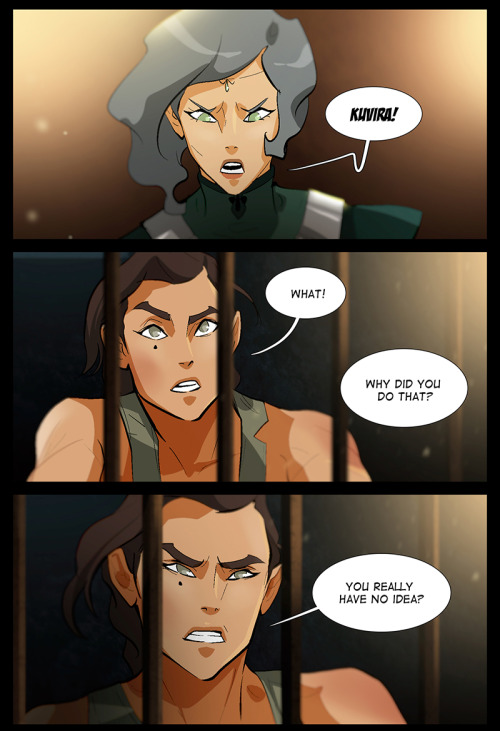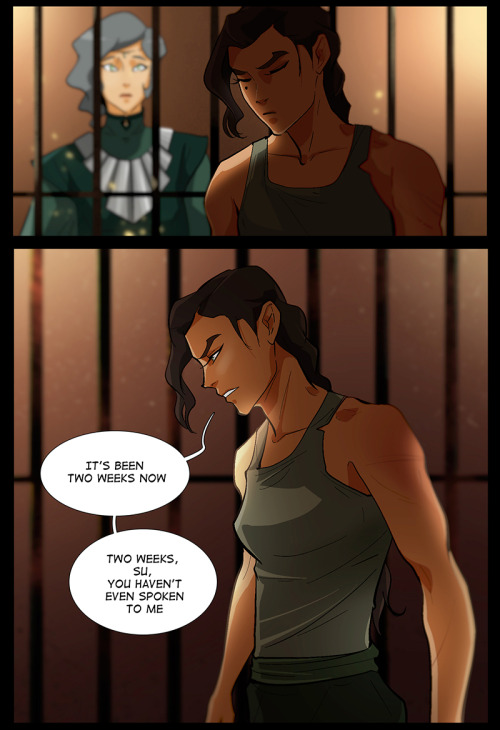I Get It - Blog Posts










YOUNG KUVIRA (The Promise p.7)
Satoru calls Suguru in every possible way, he has tried all the options from wife/husband/kitten/bunny and so on, but in every possible way prevents Suguru from calling him anything other than "Satoru". One day Suguru asks him about it and Satoru simply replies:
"You pronounce my name in a special way, I don't want to lose it. You pronounce it not rudely, not sharply, not irritably, even when you are angry on me. The way you call me already makes me melt, Suguru".
Suguru blushes and pushes him, calling him an idiot. And Satoru only shrinks back, answering that he is his one and only idiot.
Just my thoughts hehehe :"D

In which the otherwise studious and straight laced class president of Class 1-A decides to heck it and go through a short lived angsty and emo phase.

Laura and Anthy 4EVER‼️
Why do I actually miss plug az rn as if he’s a person I actually know
girl you and i can be delusional together HAHAHAHA
when I mask my disability and autism it physically hurts my brain/head and causes me to have headaches is that normal????

me when the terms i coin that i hate and wish i did better with get popular . . . literally have to resist deleting it but i love attention

Yesterday was my buddy's birthday, so i made him a 2013 painting present (with a comic for the plot of course,) so here it is!!!
The plot is about my friend impregnating Scout, and things happen.

Happy birthday DNWUDL!!!
Psst!! Check out his roblox game and characters! He's amazing!!
Tiktok: frighting_benched

If this gets- i dunno, 4 likes, i will post the full ass comic
welp
it's no longer just a consideration
help
did i just book voice lessons with george salazar? yeah i think im gonna shit myself





sunny cast during the los angeles red carpet premiere of "fool's paradise", may 09, 2023

Me after finally listening to Epic the Musical
I'm not looking to start shit so I'm not linking it or anything, but you may have seen a recent anti-dark-content post circulating with a lot of notes making rounds in the x reader sphere and while I have nothing against people posting their feelings in their own private spaces, every time I see these kinds of posts there's a lot of misinformation that gets regurgitated in the reblogs/replies and I saw what looked like a battlezone in the replies, so.
I know posts like that can be very jarring and affects people like my readers, so to combat misinformation/shaming for anyone who saw it, I'm going to share some of my information on combatting fandom puritanism/misogyny/kinkshaming in its most common forms.
The most important fact, if you read nothing else, is this:
Most women have rape fantasies.
62% to be exact. I think the most pervasive myth on this content is that consumers are "weird" for it, when the numbers don't indicate that. You're in the majority!
The vast majority of people who have rape fantasies do not put them into practice in real life. A variety of factors can determine whether or not they do, particularly specific psychiatric disorders. (X)
To specifically address common harmful and pervasive myths:
the "go to therapy!" line
Generally any academic or professional resource will immediately tell you that consuming and engaging in "dark" fantasies is accepted and encouraged by mainstream psychiatry and part of the professional education for psychiatrists. (This also used to be pretty well-known until like the last 5 years or so, not sure why that changed.)
Here are some particularly insightful resources:
1) This article by Dr. David Wahl, in my opinion, hands-down does the best job of simply and thoroughly explaining why these fantasies occur and why couples practice CNC, as well as the fact that they are both harmless, psychologically beneficial to those with them, and not at all correlated to real-life rape.
2) Dr. Claudia Six has some of the best and most thorough material out there on the subject, specifically explaining why this is taught in mainstream academia psychology and how it is incredibly helpful to rape victims (X).
3) Lisa Diamond is a professional who focuses on this subject a lot, and was featured in the documentary "The Dilemma of Desire," in which she specifically focuses on how these fantasies are not correlated to real-life desires. (X)
4) Dr. Casey Lyle has specifically talked a lot on his socials about how fantasies, even in men/the perspective of the offender, do not correlate to actual risk of offending.
5) This article is not by a professional, but from the perspective of a survivor discussing how it is beneficial to survivors.
the "why would you want that?" line
The idea that fictional tastes = what you want to happen to you in real life is actually of misogynistic origin. I don't want to seek out or add links on this one, but if you're really curious, you can research about how the idea that "women read rape fiction, that means they secretly want rape!" was originally a classic "red pill"/MGTOW/4chan talking point that made its way into mainstream dialogue and thus the public mind in the last 15 years or so due to the incel epidemic popularizing those communities.
the "it's only valid for survivors then!" line
On one hand, yes it's very important to acknowledge that trauma victims use it to cope, however I feel that over-emphasizing that gives the impression that non-victims should be excluded from consumption of dark content, so to clarify, it's a very valid means for all women. Many women who have not personally experienced rape still fantasize about it, and that's fine.
The full explanation as to why this is true for many of them would be lengthy (and addressed in the aforementioned Dilemma of Desire documentary), but in the simplest terms, nonconsensual sex is the only context in which patriarchal society permits women to have sex at all without feeling guilt. For many women, particularly those in more heavily misogynistic or religious cultures, these fantasies are appealing because the idea of consensual sex may give them feelings of shame, guilt, "sin," etc. These fantasies allow them to experience the feeling of being desired without guilt of participation.
No society on earth is free of the psychological grip that cultural misogyny has on women, and shaming women for adapting to the conditions they are forced to exist under is as harmful as the misogyny that causes it itself.
ALL women experience a form of psychological trauma inherent to female childhood and female adolescence in a patriarchal world, and that is just as valid as coping with individual traumatic events.
Good resources on the subject of why women have these fantasies and how they are helpful in general:
(X) (X)
The "what you consume will make you do it in real life!" myth
Although the resources above already address this, it's important to establish why this myth is so prevalent and what its origins are.
The idea that consuming media with dark themes leads to or indicates desires to replicate those acts is a residual element of two major events:
1) Puritan revival culture, popularized in the US and UK in the 90s and 2000s (also known as "Satanic Panic"). A major facet of this movement was TV megachurch preachers making money off of exploiting well-meaning but paranoid parents into believing that your child playing Dungeons and Dragons or Pokemon would make them future serial killers and lure them into satanic cults. (X)
2) at the tail end of this, it was cemented in the public mind as a cultural ripple aftershock of the Columbine shooting, where this sentiment became popularized as the general public blamed violent video games like Doom and "dark" music like Marilyn Manson (whose life was temporarily completely upended by the events and took him years to recover/be safe from) for the 1999 shooting. This event had MASSIVE permanent and global effects in all sorts of ways that the public often underestimates the sheer scope of, notably that it solidified, prolonged, and, in the minds of many, "proved" the paranoias of the preexisting Satanic Panic. (X) This established a precedent, leading to virtually any major horrible event being blamed on the perpetrator's media consumption, including murder and sex crimes.
What this myth ignores in the cases it references (the slenderman stabbings, columbine, sasebo slashing, batman shooting, etc) is two crucial facts: that hundreds of millions of people consume the same media with no negative effects (helpful effects even), and that in every single case cited as "evidence" to the claim, the perpetrator had a preexisting psychiatric condition correlated to acts of violence (which usually went ignored, downplayed and even accelerated/worsened by those around them rather than the help they needed).
Sorry for the wall of text, but I feel an ethical obligation to combat this kind of misinformation, and I hope these resources are helpful for those who may be negatively affected by common misunderstandings.
You are not abnormal or wrong for the fictional content you consume or the fantasies you have!


angela looking so silly here but look at her...looking at amanda....im crazy
